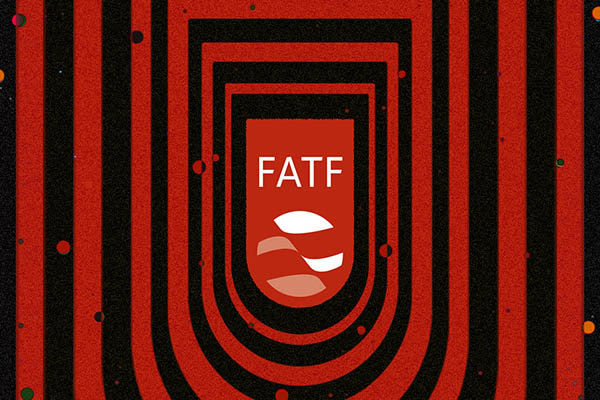
File photo
Paris-based watchdog’s president says Islamabad still needs to complete three conditions of Action Plan to achieve full compliance
The Paris-based Financial Action Task Force (FATF) on Thursday extended Pakistan’s placement on its ‘grey-list’ until June 2021, noting that the country’s efforts to combat terror financing remained under “increased monitoring.”
Following a three-day virtual FATF Plenary Session—from Feb. 22-25—the global watchdog reviewed that steps taken by Islamabad to achieve compliance with an Action Plan that would whitelist it. In a press conference, FATF President Marcus Pleyer said that the organization had recognized Pakistan’s counterterrorism efforts but warned that “serious deficiencies” still needed to be addressed.
“Out of the 27 conditions of the Action Plan, three still need to be addressed,” he said. “I recognize Pakistan’s efforts, and out of the six tasks that it had to complete [since the last review meeting], three had been done, but it substantially needs to work on the remaining three in terms of terror financing,” he said, adding that Islamabad should try to achieve full compliance as soon as possible.
He said the FATF would once again review Pakistan’s efforts in June 2021.
To a question on the prosecution of terrorists in Pakistan, Pleyer said that the FATF is “not an investigative organization,” and as such does not look at single incidents but rather the entire framework to decide a country’s status. He noted that despite Pakistan’s efforts, it was not yet completely clear of the threat of a blacklist—which could see the country sanctioned and blocked off from international aid and loans—and urged the country to fix its financial monitoring mechanisms.
“The deadline for Pakistan [to meet the 27 conditions] has expired, that is why the body has urged Pakistani authorities to ramp up their efforts in dealing with the items,” he said.
Remaining points
According to the FATF, Pakistan still needs to work on three crucial items to address the strategically important deficiencies in its counter-terror financing regime:
- Demonstrating that terror financing investigations and prosecutions target persons and entities acting on behalf or at the direction of the designated persons or entities;
- Demonstrating that terror-financing prosecutions result in effective, proportionate and dissuasive sanctions;
- Demonstrating effective implementation of targeted financial sanctions against all 1,267 and 1,373 designated terrorists, specifically those acting for or on their behalf
Additional review
In its last meeting during October 2020, the FATF had acknowledged that of the 27 conditions that were put forth to Pakistan, 21 had been fulfilled while six were left. At the time, Pleyer had said that the Paris-based organization would conduct an “on-site visit” after full compliance before agreeing to whitelist the country.
In a posting on Twitter, Industries Minister Hammad Azhar stressed that Pakistan had completed around 90 percent of the FATF’s action plan. “FATF has acknowledged Pakistan’s high-level political commitment since 2018 that led to significant progress,” he said, adding that FATF member countries had admitted that Pakistan was subject to “perhaps the most challenging and comprehensive action plan ever given to any country.”
He said that Islamabad was committed to complying with both FATF evaluation processes, adding that he would host a press briefing on Friday (today) to address the issue.
